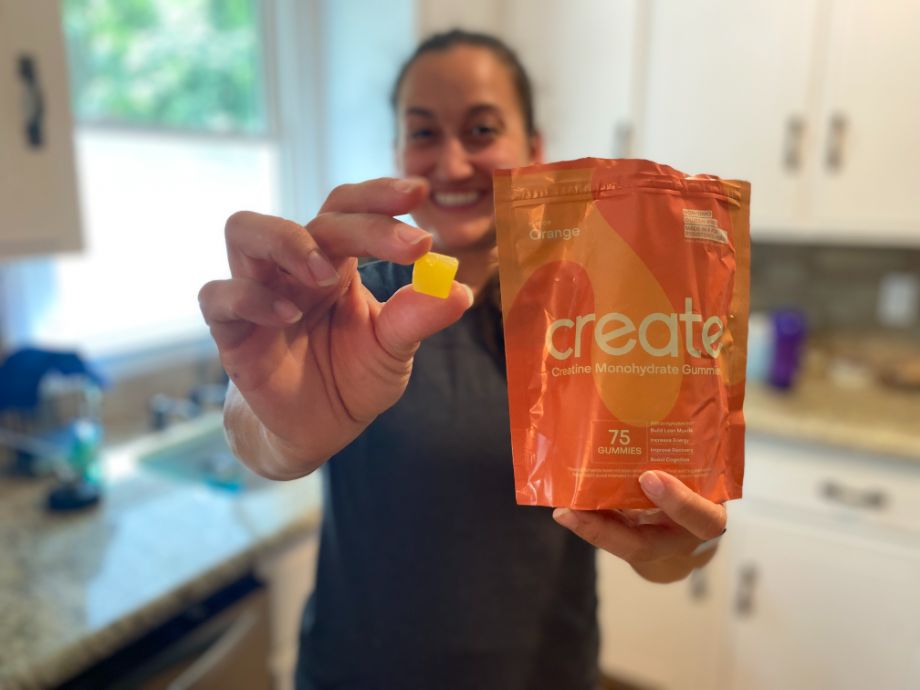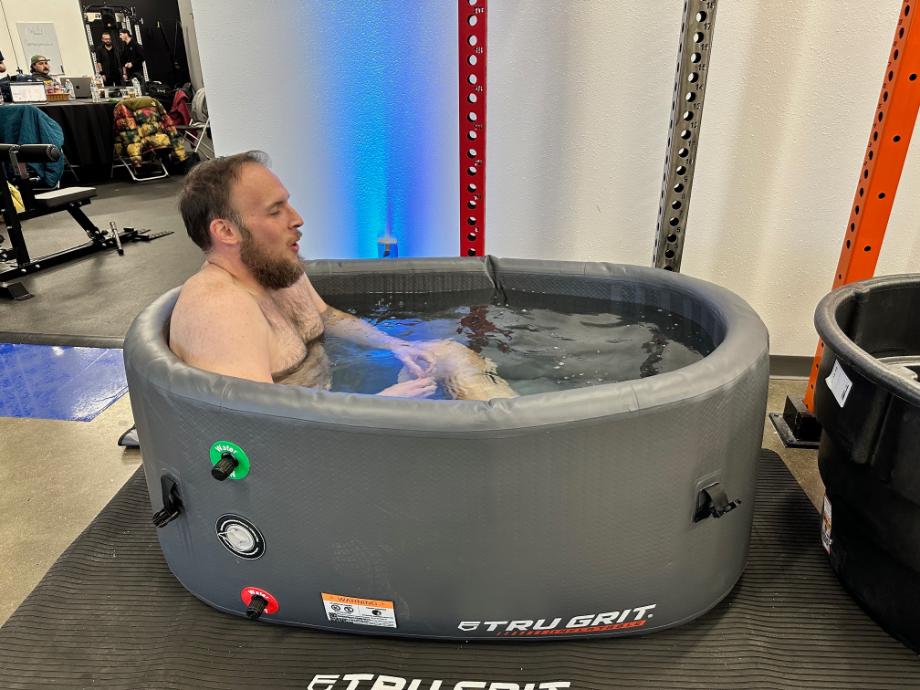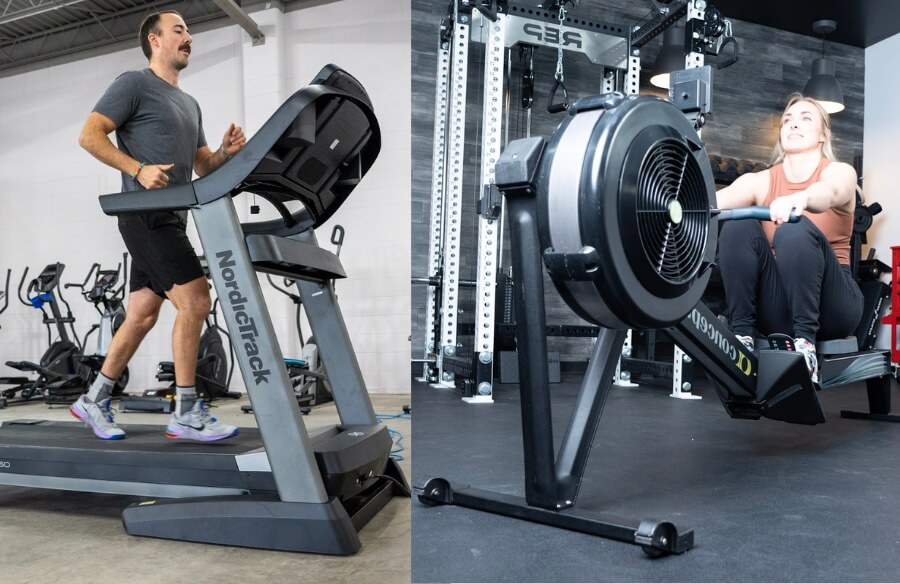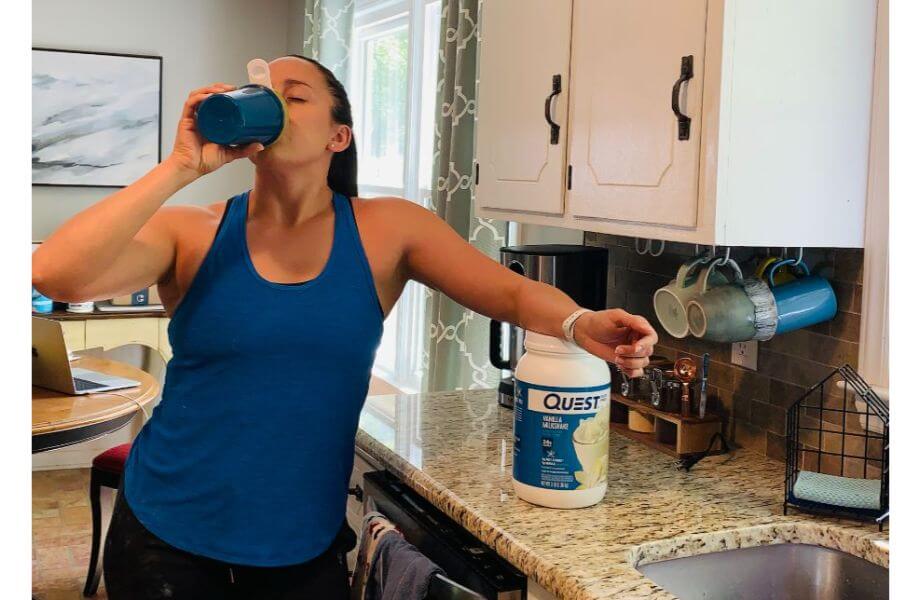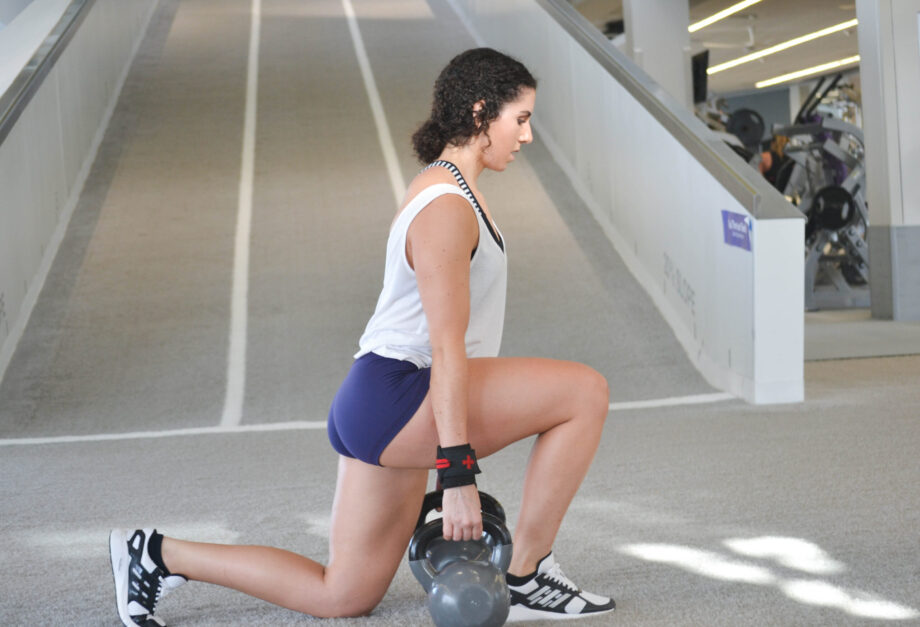Creatine is a widely used sports supplement that many a bodybuilder and super-jacked dude in the gym swear by. Many women, however, try to avoid anything that will make them look excessively bulky, so creatine may not have crossed their radar—or if it has, they’re hesitant to give it a try.
Well, I’m here to say that not only can women benefit from supplementing with creatine, but they should give it a try—at least if they’re looking to push their potential in the gym. The best creatine for women can not only help with healthy weight gain through increases in muscle mass, but can help improve athletic performance, recovery, and even hydration. Given that women may tend to struggle to put on lean mass when compared to men, creatine can be a cornerstone of a woman’s supplement stack.
RELATED: Does Creatine Make You Gain Weight?
Let’s dive into the benefits of creatine for women below.
Medical disclaimer: This article is intended for educational and informational purposes only. It is not intended as a substitute for medical advice. For health advice, contact a licensed healthcare provider.
NOTE: We intend the term “women” to include all women, including trans women. However, we recognize that almost all research on this topic has focused on cis women (i.e., women who are not trans). For that reason, when we reference gender-based research and nutritional recommendations, we will clarify by saying “cis women.” We encourage trans and nonbinary people of all genders to check in with a trans-competent nutritionist regarding their supplements and training needs.
First: What is Creatine?
Creatine is a compound that is synthesized naturally in the body by combining the amino acids glycine, arginine, and methionine. One of the main benefits of creatine stems from its ability to help make ATP, or adenosine triphosphate.
The body’s main source of energy is ATP, which is used for almost every body process, from exercise to just plain breathing. Muscle cells use ATP for energy by removing a phosphate molecule, which turns adenosine triphosphate into diphosphate or ADP. In order for more energy to be created, ADP needs to become ATP again or else fatigue occurs. This is where our trusty friend creatine comes in.
When there is enough creatine in the muscles, it can be converted to phosphocreatine, which is essentially creatine with a phosphate molecule attached. If there is enough phosphocreatine in the muscles, it can “donate” its phosphate molecule to ADP to make it ATP again. This is how creatine supplementation can provide enough energy1 needed for the muscle cells to delay fatigue and sustain energy levels during exercise.
RELATED: Best Creatine For Teens
It would take pages to explain all of the numerous benefits of creatine. However, creatine supplementation is also used for weight gain, to build muscle, improve athletic performance and change body composition. That said, although creatine has long been considered a supplement strictly for bodybuilders, that narrative is beginning to change.
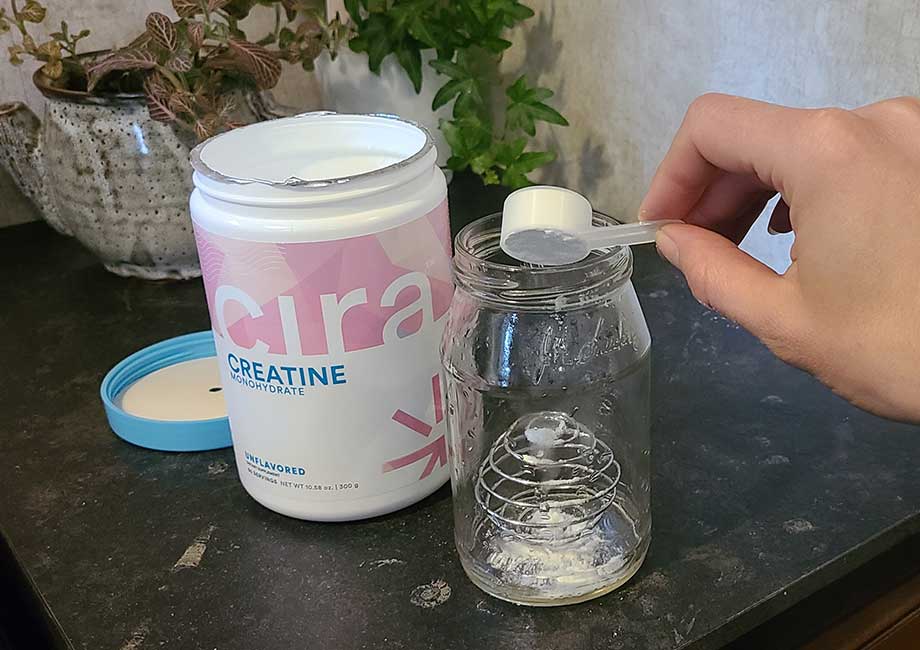
The benefits of creatine are not gender-restrictive and they can actually go a long way in the context of women’s health, particularly women who regularly engage in weightlifting and are seeking muscle gain.
Just a note, there are multiple forms of creatine, including creatine monohydrate, creatine ethyl ester, and creatine hydrochloride. Since most of the studies showing the positive effect of creatine supplementation used creatine monohydrate (and it is the most practical form of creatine to supplement with), that is going to be our focus here.
RELATED: Creatine HCl Vs Monohydrate
Benefits of Creatine for Women
As mentioned, creatine is a dietary supplement that women can and should benefit from if they are seeking physical improvements through strength training. Considering men have naturally high testosterone levels that make building lean body mass a breeze, you may even argue that women are even more incentivized to take creatine to increase muscle mass and boost exercise performance.
Muscle Growth
Science has shown that creatine monohydrate supplementation is able to boost muscle growth2 in people that engage in regular resistance training, especially when taken in conjunction with a diet that is high in carbohydrates and animal protein, such as red meat.
When creatine stores in the muscle are high, the muscle cells swell with water. According to the International Society of Sports Nutrition3, the combination of the presence of high creatine levels in skeletal muscle and the muscle swelling may be a major cause of muscle gain.
This is why sports supplements are huge, because while we can get creatine from our diet, creatine monohydrate supplementation allows us to consume a large amount of creatine in a smaller volume for a lower cost.
RELATED: Best Pre-Workout With Creatine
Exercise Performance
Like we talked about, creatine can majorly help boost ATP synthesis2 which, in turn, has been shown to help improve exercise performance4. The results of one recent study showed that athletes who supplemented with creatine saw a 4% to 7% increase in peak power output5 and overall speed during sprinting, and similar improvements in exercise capacity have also been demonstrated in similar research.
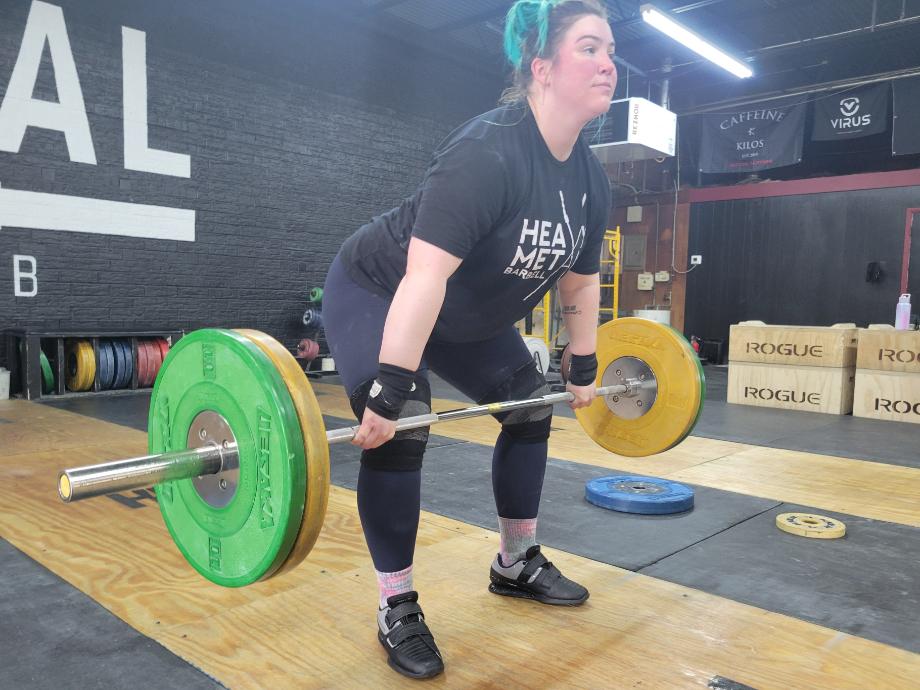
It has also been shown that creatine helps maintain muscle strength during high-intensity exercise that you might otherwise be too sore to perform. It does this by reducing oxidative stress that exercise may cause or inflammation that occurs during injury recovery. This oxidative stress can result in muscle soreness and even muscle loss, but creatine has been shown to help mitigate this inflammation to improve recovery and conserve skeletal muscle.
Brain Health and Cognition
Creatine has been shown in studies6 on healthy individuals to help increase cognitive function—short-term memory, in particular—and lessen mental fatigue. Creatine has had favorable outcomes for improving cognition—e.g., attention, perception, and learning—and mood, particularly for women with major depressive disorder (MDD). In fact, the American Journal of Psychiatry7 found, “creatine augmentation of SSRI treatment may be a promising therapeutic approach that exhibits more rapid and efficacious responses in women with major depressive disorder.” Even further, while creatine shouldn’t have any effect on your sleep health, it has been shown to potentially help mitigate the effects of sleep deprivation8.
Bone Density?
As a final note, when researching creatine and aging you may have heard a rumor that creatine can help improve bone density, which is significant for postmenopausal women. Why? Estrogen is a hormone that is vital to maintaining bone strength, but estrogen levels drastically decline during menopause.
This is why women are at an exponentially higher risk of osteoporosis compared to men as they age and some women have turned to creatine for help. Bad news, though.
By exerting a mechanical load on the bones through muscular effort, resistance training has certainly been shown9 to strengthen bones. However, the effect of creatine alone being beneficial for bone health has been debunked10. What we can say is that creatine can help with muscle growth and strength during weightlifting, which can indirectly help build stronger bones.
Potential Side Effects of Creatine
Some people may experience mild stomach discomfort when they begin taking creatine for the first time, but this typically subsides after a few days of consistent supplementation. The biggest effect of creatine supplementation that women should be aware of is its effect on body weight.
Now, don’t be alarmed just yet. Though you may have heard that creatine is often taken for weight gain, this weight is rarely ever fat tissue. The thing is, when creatine levels rise in the muscle cells, it brings a lot of water with it. This swelling via water is a good thing, because it can help increase muscle mass. However, the water retention can be alarming for those who heavily rely on the scale to track their fitness progress.
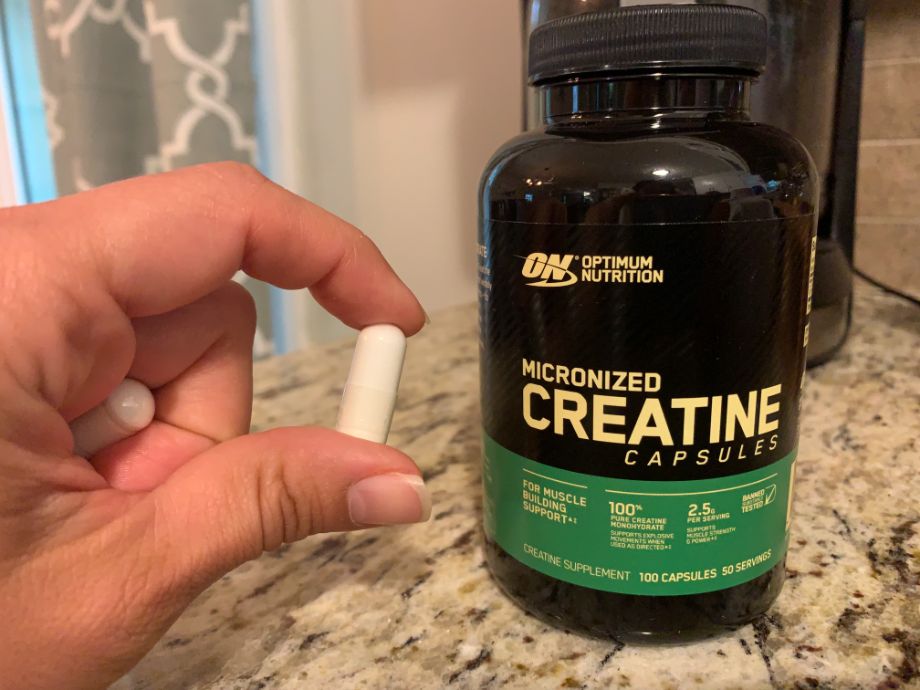
RELATED: How Much Water Should You Drink With Creatine?
In fact, it has been shown that people who start supplementing with creatine can expect to gain 2 to 4 pounds weight11 of water weight during the first couple of days. This water retention caused by creatine supplementation can also cause bloating, which can cause panic in those who aren’t expecting it and may mistake it for fat gain.
The good news is that, if you’re expecting the water retention and bloating, you’ll know that it’ll pass eventually. Other than that, creatine does not appear to have any negative side effects when taken as directed within safe dosages.
How Much Creatine Should Women Take?
For the body to maintain creatine stores, it needs to replenish between 1 to 3 grams of creatine per day. However, studies have shown that maximum benefits to exercise performance, muscle strength, and gains in lean muscle mass are seen with an ingestion of 5 grams of creatine daily3.
RELATED: Can You Take Too Much Creatine?
For perspective, there is about 1 to 2 grams of creatine in one pound of uncooked beef and salmon, which means you’d have to eat an unreal amount of animal meat everyday to meet the requirements. This is why creatine monohydrate supplementation is so popular, as most supplements provide exactly 5 grams of creatine per serving in a small, easy-to-manage serving.
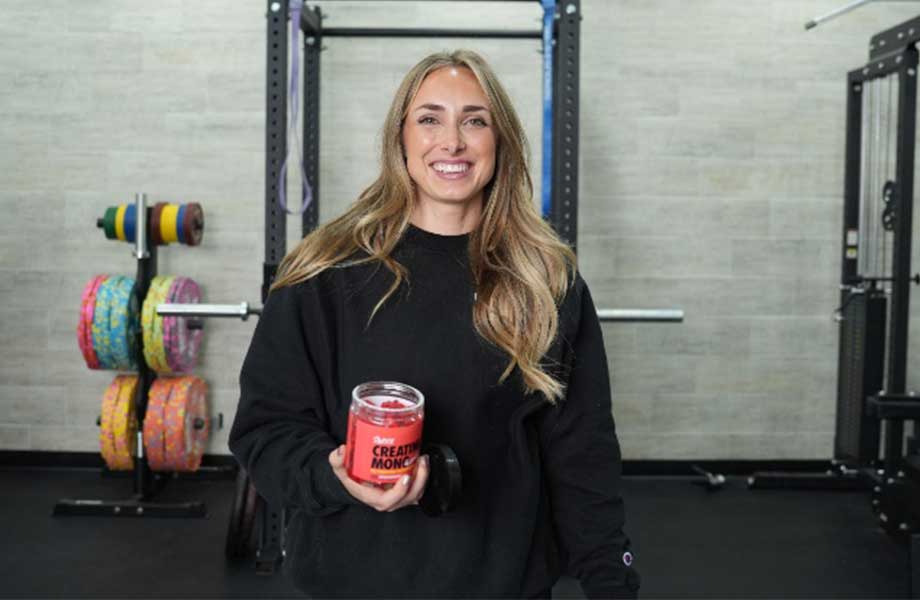
In vegetarians who refrain from eating animal foods like red meat, creatine stores may be lower, so supplementation with creatine may result in greater gains in muscle creatine. Finally, if you are a woman who engages in very high-intensity training and has a lot of lean muscle mass already, you may need to consume 5 to 10 grams of creatine per day to maintain stores3.
RELATED: Best Vegan Creatine
Finally, don’t worry about having to do a loading phase with large doses of creatine. Although it is an option if you are on a tight deadline to achieve strength and weight gain, the long-term benefits are the same as if you just took the recommended dose of 5 grams daily11.
How To Take Creatine
There’s no “best time” to take creatine—regardless of gender—and consistency is more important than timing when it comes to creatine. As for how to take creatine, the most common (and preferred) way to take it is in the powdered version that’s mixable with water, juice, or even your morning coffee. You can also take a creatine gummy or capsule.
Creatine Safety Considerations
There are plenty of myths and misconceptions surrounding creatine usage, such as increases in testosterone (Myth!), dehydration (Myth!), and acne (Myth!). Creatine is generally safe, but only in the recommended dosage. As with most things, if you overindulge, you can leave yourself open to health risks, such as kidney damage. You should also consult with your doctor or other medical professional if you have a medical condition or are taking certain medications before starting a creatine regimen.
RELATED: Creatine Myths
What’s the Best Type of Creatine for Women?
Creatine monohydrate is typically the best creatine to look for as it is effective, relatively low-cost and easier on the stomach than other forms of creatine. The best creatine for women would be the one that you can take the most consistently, as creatine should be consumed daily for best results.
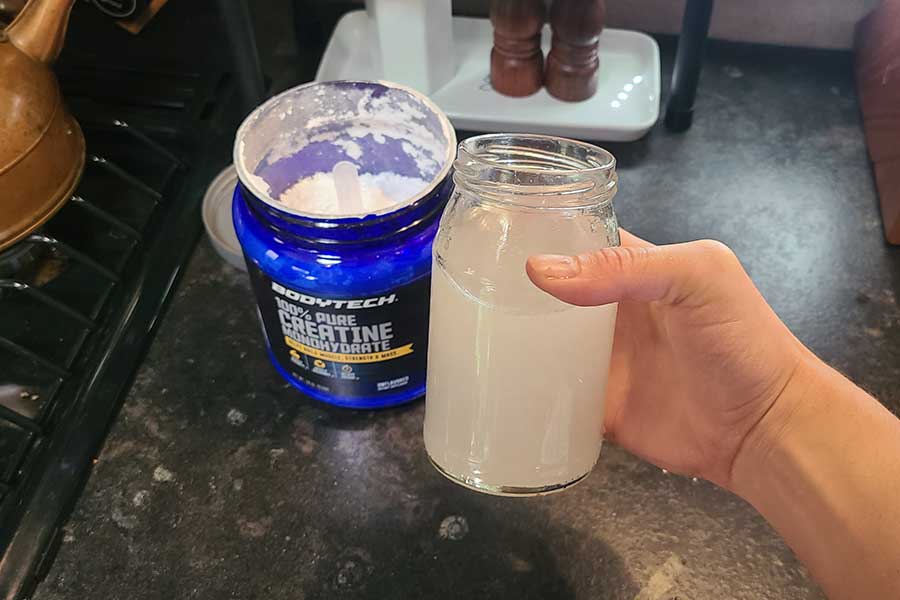
So, if this means a flavored form of creatine, go for it. If this means going for an unflavored creatine powder that you can mix with foods, beverages, or other supplements for more flexibility and versatility, that’s fine, too. Whatever you choose, just make sure you’re getting at least 5 grams (or 5,000 milligrams) of creatine monohydrate per serving and you’ll be all set.
Benefits of Creatine for Women: Final Thoughts
Now that we’ve made our case, let’s quickly review why we think women could benefit from creatine supplementation:
- Helps build lean mass
- Boosts exercise performance
- Aids in recovery and muscle soreness
- Can prolong muscle fatigue
Science has shown that all it takes is 5 grams of creatine per day along with consistent resistance training to reap the benefits of creatine supplementation. We recommend creatine monohydrate, preferably from a brand that is third-party tested.
Just be aware that the creatine molecule has to carry a lot of water with it in order to operate, so you may see some sudden and dramatic weight gain due to water retention. This is not a gain in fat, however, so if a little extra water weight doesn’t bother you, there is nothing to worry about.
Benefits of Creatine for Women: FAQs
Should females use creatine?
Everyone can benefit from creatine, regardless of their gender identity. In fact, females may be more inclined to use creatine due to its ability to help with muscle growth, which is a function that comes more naturally to men due to their hormonal profile.
Is creatine good for weight loss in women?
Women have not been definitively shown to have weight loss as a direct result of creatine supplementation, according to science.
Does creatine have side effects for women?
Creatine hasn’t been shown to have any adverse effects on women (or men) when taken at the recommended dosage. Further, creatine shouldn’t affect hormone levels. If you’re experiencing negative side effects from creatine, discontinue its use.
Should women over 40 take creatine?
Perimenopause can start in your forties as your body transitions to menopause. With menopause, women can lose up to 2% of their bone density12 and experience muscle loss each year. As we’ve established, the link between creatine and bone density restoration is still being determined. As for muscle loss, creatine is still being studied for its preventative effects on muscle deterioration (or Sarcopenia) in older populations. So, creatine supplementation may benefit women over 40 but should still be paired with regular strength training.
These statements have not been evaluated by the Food and Drug Administration. This product is not intended to diagnose, treat, cure, or prevent any diseases.
References
- Wu SH, Chen KL, Hsu C, et al. Creatine Supplementation for Muscle Growth: A Scoping Review of Randomized Clinical Trials from 2012 to 2021. Nutrients. 2022;14(6):1255. Published 2022 Mar 16. doi:10.3390/nu14061255
- Wax B, Kerksick CM, Jagim AR, Mayo JJ, Lyons BC, Kreider RB. Creatine for Exercise and Sports Performance, with Recovery Considerations for Healthy Populations. Nutrients. 2021;13(6):1915. Published 2021 Jun 2. doi:10.3390/nu13061915
- Kreider RB, Kalman DS, Antonio J, et al. International Society of Sports Nutrition position stand: safety and efficacy of creatine supplementation in exercise, sport, and medicine. J Int Soc Sports Nutr. 2017;14:18. Published 2017 Jun 13. doi:10.1186/s12970-017-0173-z
- Moraes Rd, Van Bavel D, Moraes BS, Tibiriçá E. Effects of dietary creatine supplementation on systemic microvascular density and reactivity in healthy young adults. Nutr J. 2014;13(1):115. Published 2014 Dec 15. doi:10.1186/1475-2891-13-115
- Bogdanis GC, Nevill ME, Aphamis G, et al. Effects of Oral Creatine Supplementation on Power Output during Repeated Treadmill Sprinting. Nutrients. 2022;14(6):1140. Published 2022 Mar 8. doi:10.3390/nu14061140
- Avgerinos KI, Spyrou N, Bougioukas KI, Kapogiannis D. Effects of creatine supplementation on cognitive function of healthy individuals: A systematic review of randomized controlled trials. Exp Gerontol. 2018 Jul 15;108:166-173. doi: 10.1016/j.exger.2018.04.013. Epub 2018 Apr 25. PMID: 29704637; PMCID: PMC6093191.
- Lyoo, I. K., Yoon, S., Kim, T.-S., Hwang, J., Kim, J. E., Won, W., … Renshaw, P. F. (2012). A Randomized, Double-Blind Placebo-Controlled Trial of Oral Creatine Monohydrate Augmentation for Enhanced Response to a Selective Serotonin Reuptake Inhibitor in Women With Major Depressive Disorder. American Journal of Psychiatry, 169(9), 937–945. https://doi.org/10.1176/appi.ajp.2012.12010009
- Forbes SC, Cordingley DM, Cornish SM, Gualano B, Roschel H, Ostojic SM, Rawson ES, Roy BD, Prokopidis K, Giannos P, et al. Effects of Creatine Supplementation on Brain Function and Health. Nutrients. 2022; 14(5):921. https://doi.org/10.3390/nu14050921
- Hong AR, Kim SW. Effects of Resistance Exercise on Bone Health. Endocrinol Metab (Seoul). 2018;33(4):435-444. doi:10.3803/EnM.2018.33.4.435
- Sales LP, Pinto AJ, Rodrigues SF, Alvarenga JC, Gonçalves N, Sampaio-Barros MM, Benatti FB, Gualano B, Rodrigues Pereira RM. Creatine Supplementation (3 g/d) and Bone Health in Older Women: A 2-Year, Randomized, Placebo-Controlled Trial. J Gerontol A Biol Sci Med Sci. 2020 Apr 17;75(5):931-938. doi: 10.1093/gerona/glz162. PMID: 31257405.
- Buford, T.W., Kreider, R.B., Stout, J.R. et al. International Society of Sports Nutrition position stand: creatine supplementation and exercise. J Int Soc Sports Nutr 4, 6 (2007). https://doi.org/10.1186/1550-2783-4-6
- Finkelstein JS, Brockwell SE, Mehta V, Greendale GA, Sowers MR, Ettinger B, Lo JC, Johnston JM, Cauley JA, Danielson ME, Neer RM. Bone mineral density changes during the menopause transition in a multiethnic cohort of women. J Clin Endocrinol Metab. 2008 Mar;93(3):861-8. doi: 10.1210/jc.2007-1876. Epub 2007 Dec 26. PMID: 18160467; PMCID: PMC2266953.




